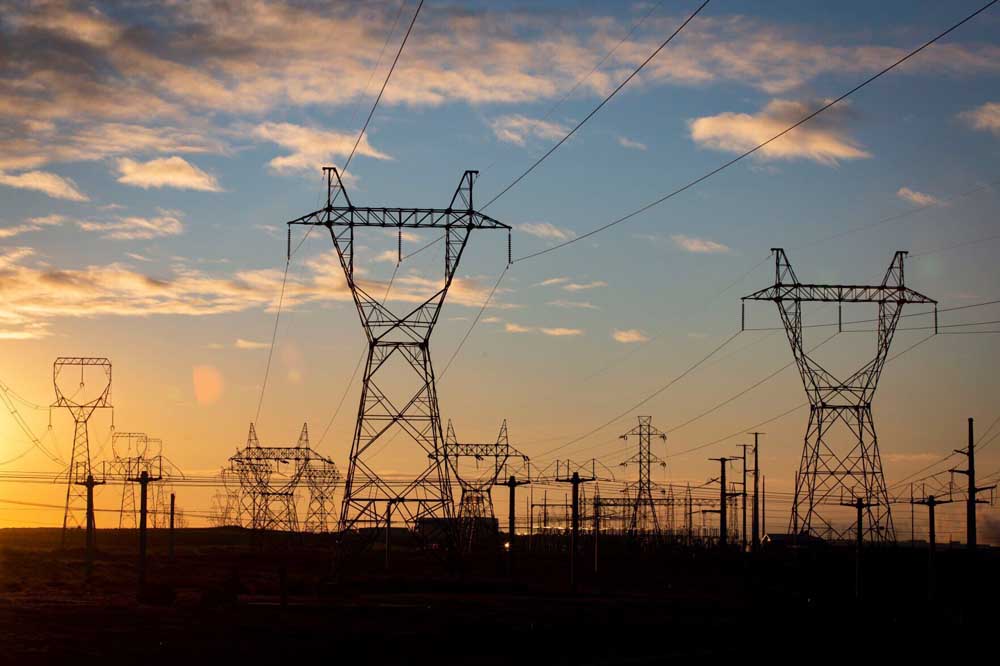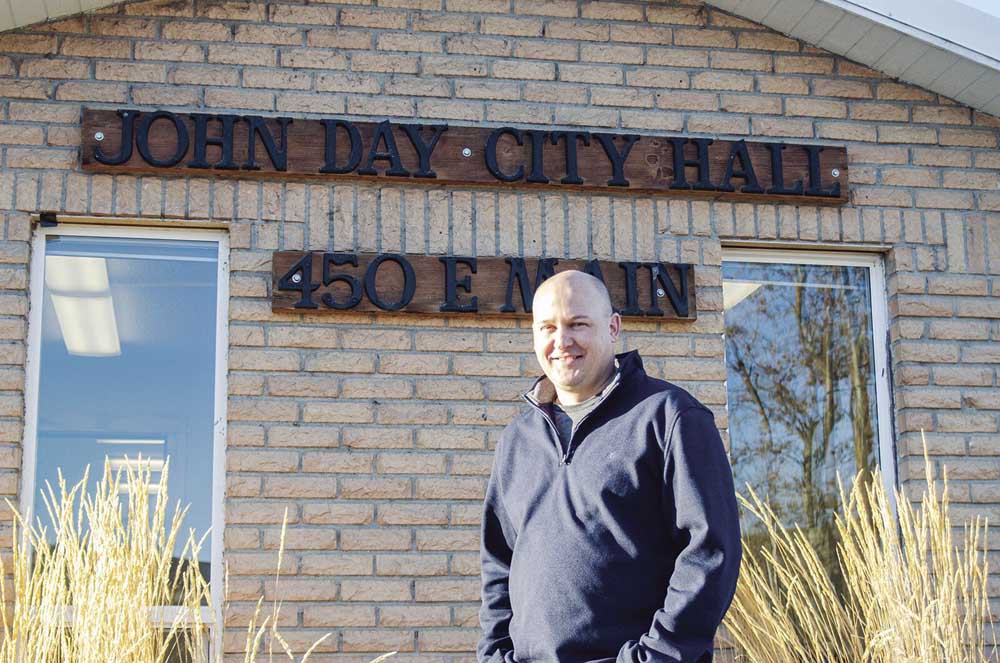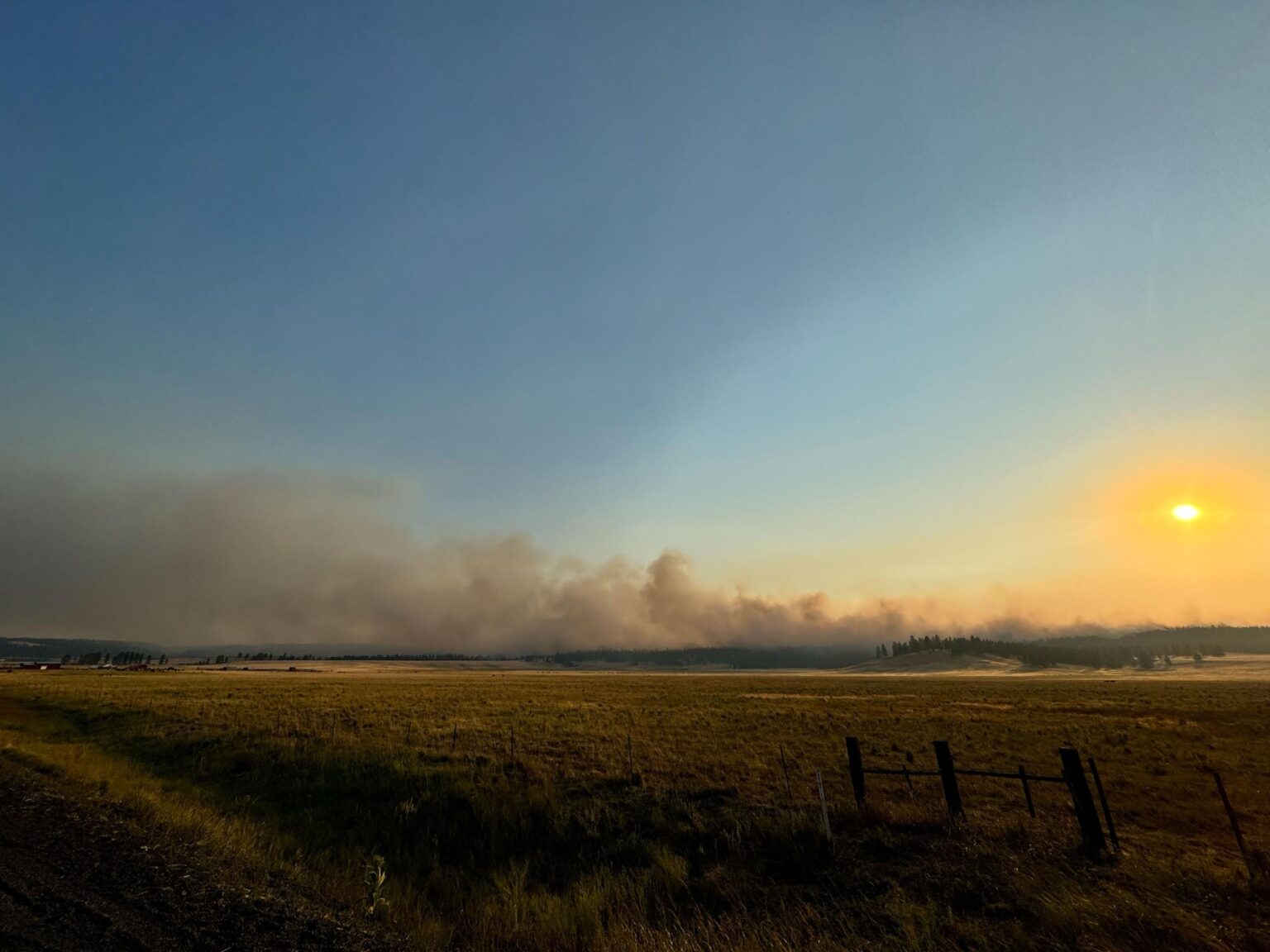Judge dismisses Idaho Power condemnation lawsuit for B2H power line
Published 1:00 pm Saturday, November 9, 2024

- The setting sun silhouettes transmission lines in Boardman in February 2022 near the planned future starting point of Idaho Power’s proposed 300-mile Boardman to Hemingway transmission line, which is slated to cross through Baker County.
BAKER CITY — A judge has dismissed the lawsuit that attorneys for Idaho Power Co. filed against a Baker County couple seeking an easement across their land to build a power transmission line.
Judge Matt Shirtcliff in Baker County Circuit Court on Oct. 29 granted a summary judgment to Tel and Lacey Abbe, who own a ranch near Farewell Bend.
Attorneys for Idaho Power in May filed a condemnation lawsuit against the Abbes to obtain a permanent easement across the couple’s property for the Boardman to Hemingway power line the company has been planning for more than a dozen years and hopes to finish by 2027.
Although Shirtcliff’s ruling dismisses the lawsuit, the judge issued his order without prejudice, meaning Idaho Power can file a new lawsuit against the Abbes.
Timothy Helfrich, the Ontario attorney who represents Idaho Power, and Andrew Martin, the Baker City attorney who defended the Abbes, discussed the potential for a new lawsuit during oral arguments Oct. 22 before Shirtcliff.
The central issue in that hearing, and in the motion for summary judgment that Martin filed on July 23, is language in the lawsuit that Martin argued would impose personal obligations on the Abbes that Oregon law prohibits in property easements.
Martin made the same argument in two other Idaho Power condemnation lawsuits, both in Malheur County. A judge in Malheur County dismissed both of those lawsuits.
In all three cases, the disputed language in the lawsuit references “warranties and covenants” that constitute “personal obligations” from the Abbes, Martin argued during the Oct. 22 hearing.
Shirtcliff agreed, writing in his Oct. 29 ruling that because the lawsuit contains that language, “that portion of the complaint is invalid as a matter of law.”
Moreover, that language also was included in a settlement offer Idaho Power — as required by law — made at least 40 days before filing the condemnation lawsuit.
If the company were allowed to amend the lawsuit by removing the invalid language, as Helfrich suggested during the Oct. 22 hearing, the terms in the suit would be different than in the pre-lawsuit letter, Shirtcliff wrote.
The judge wrote the Oregon Court of Appeals ruled in a previous case the pre-lawsuit offer, and the lawsuit itself, must be “precisely the same” regarding the property interests the plaintiff is seeking.
Therefore, the judge concluded, allowing Idaho Power to remove the invalid language in the lawsuit against the Abbes would violate that legal precedent. As a result, the judge granted Martin’s motion for summary judgment.
The lawsuit
Also known as eminent domain, condemnation is a legal process in which a judge or jury orders a property owner to sell land, or an easement, to make possible a particular project, and decides the price.
Public agencies or private companies can seek eminent domain to acquire land for a project. Idaho Power has filed 14 such lawsuits since September 2023 for the Boardman to Hemingway project. The company’s attorneys have filed suits in other counties as well.
In the Abbes’ case, Idaho Power is seeking a 160-foot-wide easement, totaling about 17.5 acres, across the couple’s property for the power line and an access road.
The company has offered $28,470 for the easement for the project known as B2H, according to the lawsuit. The couple rejected the offer, which was made in the letter that must be sent at least 40 days before the lawsuit is filed.
Oct. 22 court hearing
During the hourlong hearing at the Baker County Courthouse, Martin summarized the argument he made in his July motion — that the “warranties and covenants” in the lawsuit constitute “personal obligations” from the Abbes that can’t, by law, be included in the description of an easement in a condemnation suit.
“Idaho Power has no right to obtain those warranties,” Martin said to Shirtcliff.
The Malheur County cases were dismissed for the same reason, Martin argued, so Shirtcliff should apply the same standard to the Abbes’ case and grant the motion for summary judgment that would dismiss that lawsuit.
Helfrich, in a written objection to the decision on the two Malheur County lawsuits, filed Oct. 17, argued despite the issue with the language, the judge should allow attorneys to amend the complaints to remove the offending language “rather than unnecessarily file the same thing in a new case.”
In his argument before Shirtcliff on Oct. 22, Helfrich called Martin’s claims a “classic case of form over substance.”
Helfrich said the judge could, and should, allow Idaho Power to amend its complaint against the Abbes, rather than dismissing the suit.
If the judge dismissed the suit — as Shirtcliff subsequently did — Idaho Power would file a new complaint, seeking the same easements across the Abbes’ property.
“We would simply be back to square one,” Helfrich said.
14 lawsuits in Baker County so far
Attorneys for Idaho Power Co. have filed 14 lawsuits seeking easements across private property in Baker County for the Boardman-to-Hemingway power line the company wants to finish in 2027.
Attorneys Tim Helfrich and Zach Olson of Ontario filed the lawsuits in Baker County Circuit Court. Attorneys have also filed multiple complaints in other counties through which the power line would pass, including Union and Morrow.
The first condemnation for Baker County property was filed in September 2023 for a parcel near Interstate 84 about five miles southeast of Baker City.





